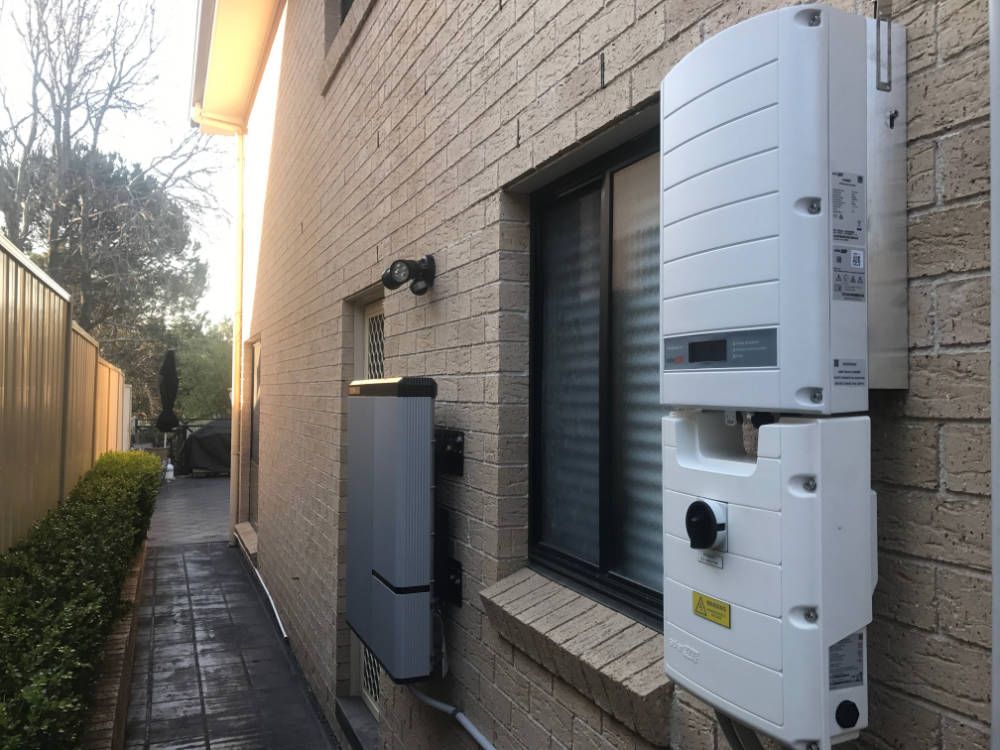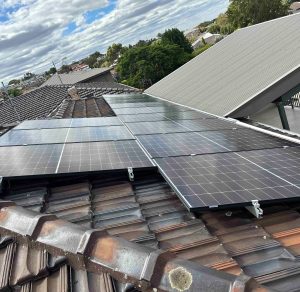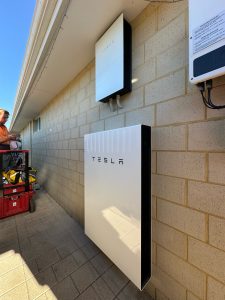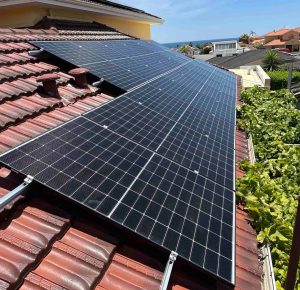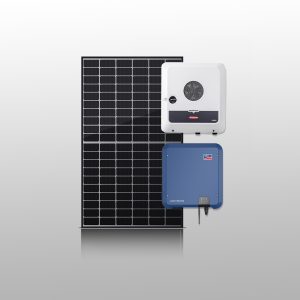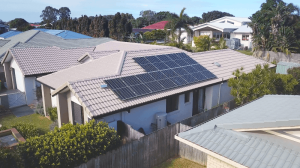What is the expected Energy Storage lifespan? Home energy storage, on average last around 20 years. Energy storage companies are providing 10 years of warranty for storage solutions. Some companies are giving a warranty on the number of charges and discharges.
Various types of home solar batteries are:
Lead-acid Batteries
Lead-acid batteries are a tested technology that has been used in off-grid energy systems for decades. They have a relatively short life and lower depth of discharge (DoD) compared to the other battery types. It is the least expensive option currently on the market in the home energy storage sector. For homeowners who want to go off the grid and need to install lots of energy storage, lead-acid batteries can be a good option.
Lithium-Ion Batteries
Lithium-ion batteries are the gold standard of home energy storage systems because they are lighter, more compact, and have a longer lifespan and higher DoD than lead-acid batteries. This batteries are more expensive than other types of batteries. Because of higher demand, the cost of lithium-ion batteries has decreased by 85%, making solar power backed by solar storage more accessible.
Saltwater Batteries
Unlike lead-acid and lithium-ion batteries, saltwater batteries don’t contain heavy metals, it relies on saltwater electrolytes. It can be easily recycled, unlike lead acidic and lithium-ion batteries which use heavy metals. This makes saltwater batteries more environmentally friendly. As a new technology, saltwater batteries are relatively untested.
The best option for solar system
Among the three, lithium-ion batteries are the best option for a solar panel system, though other battery types can be more affordable. Lithium-ion batteries offer the most reliable source of power thereby maximizing solar energy potential. Initially, it was very expensive, but now the price has come down by 85%, making it more affordable.
Factors effecting the lifespan of energy storage system
1. Battery Usage
The battery usage cycle is the main factor in the life expectancy of a solar battery. For most uses of home energy storage, the battery will “cycle” (charge and drain) daily. The more we use, the battery’s ability to hold a charge will gradually decrease. A solar battery will have a warranty that guarantees a certain number of cycles and/or years of useful life. For example, a battery might be warrantied for 5,000 cycles or 10 years at 70 percent of its original capacity. This means that at the end of the warranty, the battery will have lost no more than 30 percent of its original ability to store energy. The life of a battery depends on its brand and the capacity it will lose over time. Most solar batteries are generally deep-cycle batteries, which allows them to discharge up to 80% of their stored energy before recharging.
2. Solar Battery Temperature
Temperature affect the solar battery as well. Protecting the battery from freezing or sweltering temperatures can increase its useful life. The place you live and where the battery is installed makes a huge difference. The battery unit should be kept at an optimal temperature to maximize its life and efficiency.
Outdoor installation is fine where there are the optimal temperature and absolutely no large temperature variations. Whereas, in regions with harsh temperatures, the battery will perform optimally only if it’s installed in the garage or basement.
When a PV battery drops below 30° F, it will require more voltage to reach maximum charge; when that same battery rises above the 90° F threshold, it will become overheated and require a reduction in charge. To solve this problem, many leading battery manufacturers, provide temperature moderation as a feature. Especially leading battery manufacturers provide this technology
3. Solar Battery Maintenance
Proper maintenance can have a significant effect on your solar battery’s lifespan. Maintaining your solar system costs $150-$300 annually, while repairs could cost anywhere between $100-$3,200. Proper maintenance can help you get the biggest bang for your battery buck.
A monthly inspection of solar batteries with an eye toward any potential problems would be ideal. One has to check for leakage and corrosion, especially near the terminals and cables, feel around for hot spots. If you notice any issues with any of your batteries, deal with them promptly to prevent additional damage to your storage bank. Quality maintenance efforts can definitely impact how long your solar battery will last.
4. Solar Battery Warranty
Solar battery manufacturers offer a wide range of warranties for their battery products. Usually, lead-acid batteries are found to have a low warranty period whereas lithium-ion batteries are covered for 10 years or more.
When it comes to batteries, there is usually one warranty that covers both product and performance elements. Manufacturers guarantee that the product will remain free of defects and retain a specified level of performance for a number of years or a number of battery cycles, whichever comes first.
The general range for a solar battery’s useful lifespan is between 5 and 15 years. Batteries will have to be replaced at least once to match the 25year lifespan of the PV system.
Install from professionals
Having realized that battery is the future, Regen Power has made exclusive deals with industry-leading battery suppliers. This enables us to provide premium batteries at an affordable price for our customers. Our solar technician can help you determine the best placement for your solar battery. We promise live monitoring of solar panels and batteries 24/7.
Regen is now a Tesla-certified installer, which means we offer a customized solar and battery solution that enables one to harness the abundant power of the sun with zero dependence on fossil fuels. Installing Powerwall with Regen is easy. We take care of everything from system design, permitting, installation, financing, and customer service.
Related Article:-
Upcoming energy storage solutions in Australia
Best home storage batteries in Australia
[button title=”More about Tesla Powerwall” link=”https://regenpower.com/tesla-powerwall-certified-installer/” target=”_blank” size=”” color=”” class=””]

